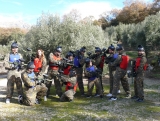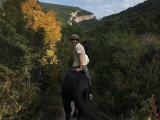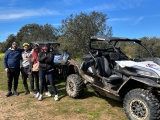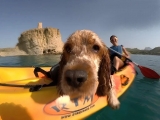Diving is a sport with a long history that has evolved over the years, developing various disciplines. One of these is freediving, where divers descend to the depths of the sea on a single breath without any oxygen supply system.

Different freediving disciplines
Among enthusiasts of this sport, some prefer one discipline over another. We can distinguish between static apnea, dynamic apnea, free immersion, constant weight, variable weight or no limits.
It's important to note that our bodies undergo changes when we submerge in water, even if we don't notice them. Some of these reactions involve the slowing down of heart rate or variations in body pressure.
Equalisation is undoubtedly the most important adaptation our body makes, preventing lung compression through increased blood circulation.

What should I consider before practising freediving?
Before diving into the deep, you should be aware this isn't a sport for everyone. Good physical condition, along with mental aptitude and determination are some of the fundamental requirements for this technique. Staying relaxed is crucial as you'll be several metres underwater!
As mentioned earlier, proper physical preparation is key - even with strong lungs, the pressure could cause damage to your body such as: blackout from prolonged apnea, deep water blackout, hyperventilation and contraindications.

5 tips for perfecting your freediving technique
- Never dive alone. As we've mentioned, this diving practice carries risks - it's always better to have a buddy, preferably an experienced diver. You can take turns diving, ensuring someone's always monitoring the activity.
- Be careful with weights. It's better not to use too much, as being over-weighted could cause problems when surfacing.
- Monitor hyperventilation. It might seem harmless, but it can be dangerous if not done carefully. You wouldn't want to experience dizziness, chest pain, leg tremors or sweating, would you?
- Use proper equipment. This sport doesn't require much gear, but ensure you have a good wetsuit, fins, mask and, if helpful, a nose clip. A torch and surface marker buoy can also be useful.
- Practice. Freediving requires extensive training and patience - remember it's a technical sport and should be treated as such.

Would you like to become a freediver? First you should take a diving course to master the basic skills this sport requires. Once you've got these down, you can start training your lungs.
If you're already a regular freediver, we encourage you to continue - you might reach professional levels and even compete for records. Train both body and mind, and enjoy!












